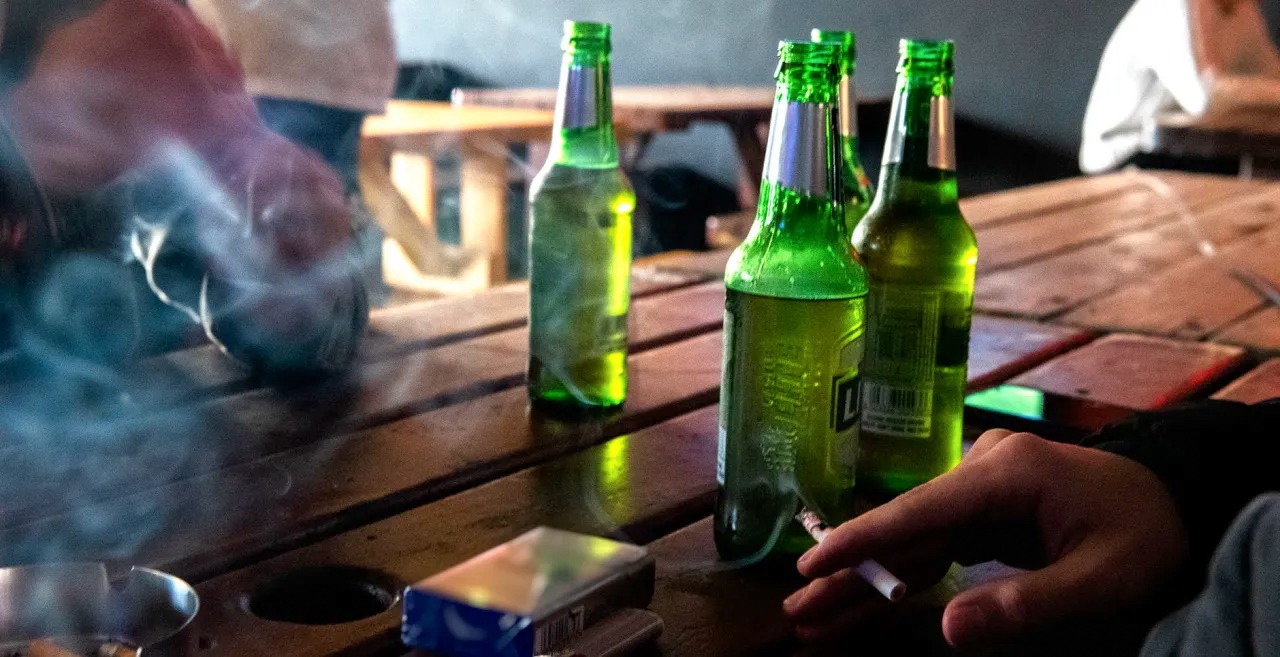The Drinks Federation of South Africa has sounded the alarm on the illicit alcohol trade, which is now worth an estimated R25.1-billion and is responsible for R16.5-billion in lost tax revenue in the previous year.
“Illicit alcohol now makes up 18% of the total market — that’s nearly one in every five drinks sold,” said Richard Rivett-Carnac, the CEO of South African Breweries (SAB) and chairperson of the Drinks Federation of South Africa.
Echoing these concerns, industry experts are calling for a robust response.
Jan-Harm Swanepoel, a partner at Adams & Adams, described the illicit alcohol trade as “organised crime”, calling for the full use of legal measures through coordinated and decisive efforts.
Health and economic risks
Rivett-Carnac stressed that this illegal trade not only threatened public health but also undermined formal businesses and job creation, and called for urgent, coordinated action across the government, industry and enforcement agencies.
The illicit alcohol problem is exacerbated by the presence of dangerous substances, as confirmed by recent tests conducted by the University of KwaZulu-Natal. According to the tests, based on findings from the Euromonitor study, nearly 29% of adults know someone who has died from illegal alcohol, while 49% know someone who has been harmed by it.
“Many illegal products contain dangerous substances like methanol, which can cause serious harm,” said Shamal Ramesar, the head of research at the Drinks Federation of South Africa.
How to spot illicit alcohol
According to Ramesar, consumers and traders can look for several key indicators of illicit alcohol:
- Suspiciously low pricing, especially for brands priced significantly below market rates.
- Poor-quality packaging, including misspellings, faded labels, or inconsistent branding.
- Absence of excise stamps or government-approved labels.
- Unusual taste or smell, especially in spirits like vodka or gin which may contain improperly diluted ethanol.
- Unfamiliar brand names, particularly new and unregistered ones appearing frequently in markets or informal outlets.
- If a bottle seal is broken or doesn’t make a cracking sound when opening, it has probably been tampered with.
- Bottles should have a consistent fill line, while bottles filled in backyard operations often have uneven liquid levels.
- Presence of particles floating in the liquid (particularly in spirits) indicates probable adulteration (deliberate and secret addition of inferior, harmful, or unauthorised substances to a product).
Consumer behaviour
Ramesar noted that although 83% of consumers were concerned about the health risks of illicit alcohol, many prioritised affordability and accessibility — especially low-income consumers who often choose illicit products due to cost savings, with illicit alcohol priced up to 70% cheaper than the legal alternatives.
The market’s widespread availability through informal and formal channels, coupled with shifts during the Covid-19 pandemic from home brewing to large-scale counterfeiting (now representing 31% of illicit volume), reflects an increasingly commercialised and industrial illicit trade.
The legal industry’s economic weight
While illicit alcohol threatens public health and tax revenues, the legal alcohol industry remains a vital economic pillar. In 2022, it contributed more than R226-billion to South Africa’s GDP, and supported nearly 500,000 jobs — directly affecting the livelihoods of more than a million people.
The alcohol industry also generated close to R97-billion in excise taxes, funding essential public services such as education and housing. This extensive value chain — from producers to retailers and hospitality — stimulates broad economic activity, highlighting the far-reaching consequences of the illicit trade’s growth.
Read more: From seed to sip — legal liquor trade boosts SA economy, but illicit trade hangover remains
Counterfeit crisis
The success of the legal alcohol industry is being undermined by a counterfeit crisis. The sector is plagued by widespread tax evasion and counterfeit products.
“This is no longer a small problem,” warned Benjamin Rideout, a consultant at Euromonitor International, in a statement released on Tuesday, 1 July 2025.
“Unlike some countries where home brews are the issue, South Africa is facing large-scale counterfeiting — especially in white spirits. The situation demands better control over production inputs like ethanol, and much stronger enforcement,” Rideout said. DM





 South Africa’s illicit alcohol trade is now worth an estimated R25.1-billion and is responsible for R16.5-billion in lost tax revenue in the previous year. (Photo: Gallo Images / Alet Pretorius)
South Africa’s illicit alcohol trade is now worth an estimated R25.1-billion and is responsible for R16.5-billion in lost tax revenue in the previous year. (Photo: Gallo Images / Alet Pretorius)